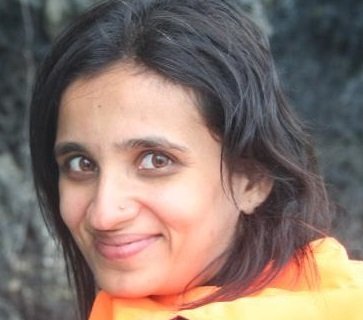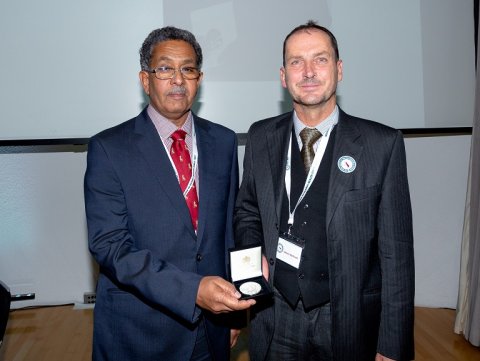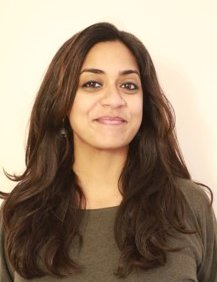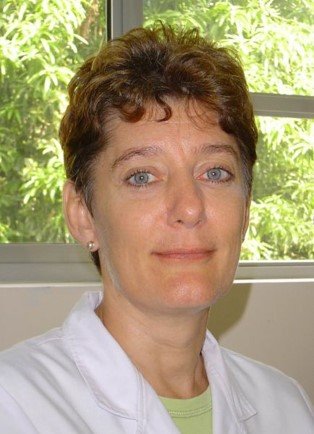Our 2018 medals and awards winners
Every year we award a number of medals in recognition of excellence. This year, the awards took place at our Annual Meeting at the Royal College of Physicians in London.
It was a great opportunity to reward pioneers in the field of tropical medicine and global health for their dedication and achievements.
On this occasion, we awarded three medals and one award. The winners are listed below.
Professor Rashida Ferrand – Chalmers Medal winner 2018

Dr Chalmers was an investigator who took a great interest in supporting the work of younger researchers, and always ready with help and encouragement.
With this in mind, the Chalmers Medal is awarded to researchers in tropical medicine or international health aged 46 or under.
Liz Corbett, Professor of Tropical Epidemiology, LSHTM nominated the winner, Professor Rashida Ferrand, also at LSHTM, who currently holds a Wellcome Trust Senior Fellowship in Clinical Science.
Professor Corbett said: “Rashida is a world leader in international adolescent HIV care, she was Wellcome Trust Intermediate and then Senior Fellowship. She has supported HIV testing interventions aimed at early diagnosis and HIV care including psychosocial support. She has close to 100 publications, 12 active grants and has been featured in the BBC and the Guardian. She is a much sought-after teacher and mentor.”
Professor Ahmed Fahal – Donald Mackay Medal winner 2018

The award is for outstanding work in tropical health, especially relating to improvements in the health of rural or urban workers in the tropics.
The citation for Professor Fahal from Professor Melanie Newport, BSMS, reads: “It is difficult to think of a more deserving candidate for the Mackay medal than Professor Ahmed Fahal who for the last 30 years has dedicated his career to the fight against mycetoma, a ‘neglected’ Neglected Tropical Disease that destroys not just the bodies but the lives, families and communities of those affected.
“Practising as a surgeon in Sudan, Professor Fahal realised more needed to be done to address mycetoma and its far-reaching consequences. After completing surgical training in the UK, he returned to Khartoum as a Consultant Surgeon and established a specialist mycetoma outpatient clinic in 1988. His reputation as an excellent and compassionate clinician spread and the clinic grew rapidly to exceed its original capacity. Prof Fahal soon recognised that mycetoma was widespread and he was just seeing the ‘tip of the iceberg’. The more he saw the more questions he had and in 1991 he established the Mycetoma Research Centre (MRC) at Soba University Hospital, University of Sudan. The MRC is dedicated both to the clinical care of patients with mycetoma and to a programme of research that is working towards filling the void of knowledge regarding the epidemiology, aetiology, clinical features, diagnosis, treatment and prevention of mycetoma.
“Additionally, Professor Fahal orchestrates an inter-disciplinary research programme that works across traditional health disciplines to provide new evidence on mycetoma burden, diagnosis, treatment and prevention. Research areas include the first double-blind clinical trial on mycetoma treatment; development of a novel rapid affordable point of care diagnostic test for mycetoma, and implementation research to test new approaches for mycetoma service decentralisation within the Sudanese health system.
“Professor Fahal has co-authored more than 150 scientific articles on mycetoma, developed evidence-based guidelines for the treatment of mycetoma, and has become an internationally recognised consultant and research leader for this disease.”
Dr Devaki Nambiar – Emerging Leader Award winner

This award is established specifically for the benefit of early-career investigators from and based in low- and middle-income countries. For the purpose of this award, we define ‘early career’ as a maximum of 10 years’ active employment post-training, discounting career breaks.
The citation for Dr Devaki Nambiar reads: “Dr Nambiar has endeavoured to link her research on health inequalities, exclusion and health and the social determinants of health to global health practice through the entirety of her career. This is a central feature of her Wellcome Trust/Department of Biotechnology India Alliance (WT/DBT IA) Intermediate Investigator Fellowship. This work draws from capacity-building she has done at the global level as Global Technical Expert and Trainer for the World Health Organisation’s programme of capacity building Health Inequality Monitoring. She has also carried out country-specific trainings in Indonesia, Nepal, and Sri Lanka on monitoring equity in health indicators. Her DBT/IA work in India draws from these processes but is customised to the subnational setting where she has been providing technical assistance and carrying out research related to universal health coverage since 2014.
“Dr Nambiar’s contributions as an academic supervisor and mentor are wide-ranging and have been especially geared towards women researchers. She currently supervises the work of ten public health researchers (9 of them women) in her current position at the George. In her past work, she has mentored 14 students/young professionals, in full time practicums and/or internships (of which roughly half extended into employment) – the range of training of these young researchers was from diplomas to MPH to postdoctorate positions. Her mentees hail from universities and institutes in India, as well as the US (University of Virginia, Yale University, Stanford University) and Canada (McMaster University). She has served as external examiner for MPhil students at Jawaharlal Nehru University's Centre for Social Medicine and is currently on two PhD committees for scholars from the University of Ghent and University of New South Wales."
Professor Bridget Wills – Sir Rickard Christophers Medal winner

The Sir Rickard Christophers Medal is awarded triennially for work in tropical medicine and hygiene in its broadest sense and in particular for practical and field applications.
Hannah Clapham, OUCRU Oxford University Clinical Research Unit, who nominated Professor Wills said: “Professor Wills is a widely respected international leader in dengue clinical research. She is a clinical researcher who has been based at Oxford University Clinical Research Unit in Ho Chi Minh City, Vietnam for 20 years. She has held various positions at the University of Oxford in this time and is currently a Professor of Tropical Medicine in the Nuffield Department of Medicine.
“In her time in Vietnam, Professor Wills has contributed vastly to the scientific knowledge about dengue pathophysiology, treatment and control. She has also played a huge role in mentoring and capacity building of the next generation of Vietnamese researchers. Before joining OUCRU, Professor Wills undertook a broad training in general medicine, infectious diseases and paediatrics medicine in the UK and Malawi. She joined OUCRU in Ho Chi Minh City in 1997 and has been based there since. She has served as Vice Director of the unit since 2006 and has been Head of the Dengue Research Group since 2012. In these roles she has led the scientific direction of not only dengue research, but the whole research programme at OUCRU.
"She has published over 100 papers in peer reviewed journals and nearly 20 book chapters. She has acted as an editor for many international journals including TRSTMH. She has developed a world-leading research programme on dengue, spanning clinical to epidemiological research, on wide range of aspects of treating and controlling dengue. She has been involved in multiple international advisory boards and in meetings and workshops for developing international guidelines. Of particular note she was instrumental in the new dengue disease severity classifications with the WHO and in developing WHO guidelines for clinical management of dengue. She has also served on advisory boards and data safety monitoring committees for dengue vaccines and antivirals. Professor Wills has led the team in Vietnam overseeing multiple clinical trials for dengue treatment, and these trials have set the standard for how such trials should be conducted."
“Professor Wills’s research has contributed greatly to our overall knowledge of dengue pathogenesis and disease and how it can be treated. In addition, her dengue research has also helped understanding of the epidemiology and best methods of control for dengue, particularly in the south of Vietnam. She has provided support for Wolbachia trials and, more recently, taken part in research considering the logistical challenges in implementing a dengue vaccine programmes.
“She supervised numerous researchers for universities in HCMC for BSc or MSc research. For all her staff and students, from junior to senior, Professor Wills provides unwavering support, and clear, constructive guidance. She has particularly supported Vietnamese clinicians as they combine clinical and research work and provided them with the opportunities to become successful clinical researchers.
“Professor Wills’s mentorship and support of researchers has also extended far beyond those she is directly responsible for, and she has provided vital support, guidance and advice to many Vietnamese and international staff within OUCRU. Professor Wills has particularly found the time to support women in science, providing sponsorship and opportunities for individuals to further their career.
“Professor Wills’s contribution to capacity building during her time in Vietnam has been vast. She has greatly improved the ability to conduct clinical research in Vietnam, giving her time for teaching and sharing her skills to help develop those skills in others. She is generous with scientific ideas and supporting others to develop their own ideas. Research in Vietnam has greatly benefited from Bridget living and working here. It is particularly noticeable that Professor Wills succeed in a time in which there were not many female researchers in this field. It would appear there have been no previous female recipients of this award, and I think Professor Wills would be a thoroughly deserving first female winner."
